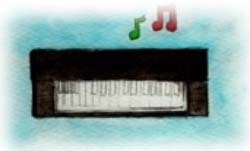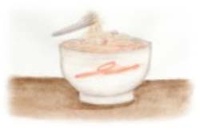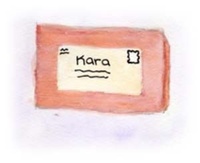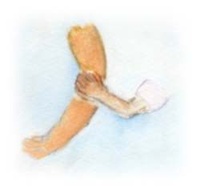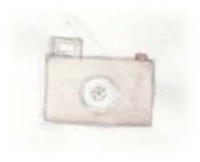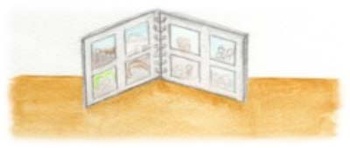I remember when my grandpa had a garden full of hibiscus, plumeria and many other various flowers. He always put the flowers in my hair, and he always said I looked like a little Hawaiian girl, where he was from.
I called my grandpa, “Papa.” Papa was also a great cook. All he had to do was taste something from a restaurant, and he could recreate it. He was the same with music. He bought a keyboard just to have fun with it, but soon enough he was playing and singing a whole song. He made it look so easy, so I tried to do it myself. It was harder than I thought. That was what Papa’s life was like. Then things started to get different.
Papa had been in and out of the hospital for different reasons, and my Nana (grandma) stayed at our house when she wasn’t at the hospital with him. I loved having her as a roommate, but I knew she was worried.
More and more often, we went to Papa and Nana’s house. We would take them to doctor’s appointments, pick up dinner for them, take them out to lunch, take them to the bank or go shopping. That was when I started to wonder why Papa couldn’t drive to all those places himself, like he used to.
One day, our trip to the grocery store with Papa turned into a nightmare because we couldn’t find him. We all looked around the whole store twice before we got closer to the entrance and saw him walking around the entrance with a store worker. Once we got to Papa and the store worker, the worker said that he saw Papa wandering around the parking lot. I looked at Papa to see what he would say, but all I saw was a confused, empty face.
More and more often I’d see that face. I didn’t know what was going on. I was scared, confused, and sad all at the same time.
Mom always took me to the library to look for books. But this time, she took me to the educational section. She told me to look for a book with the word ‘Alzheimer’s’ on it from the bottom shelves while she looked at the top shelves. We found one, and while I was reading, my mom was reading websites about Alzheimer’s. She told me that we had to help Papa and Nana, but sometimes we didn’t know how to help them, nor ourselves. We cried many times because we didn’t know what else to do.
Alzheimer’s is an illness that no one can catch, like a cold. It changes something in the brain that changed Papa’s emotions and memory day by day. One afternoon, when Papa came out of a short hospital stay, he had that vacant look on his face again. He did not want to get out of the car and go into the house. My Nana, my Mom and I tried to talk to him, but he kept pleading, "No, please, just go! I don’t know where I am! Just leave me here!" He continued to talk like this until my dad and uncle came. It took them almost two hours to get him out of the car.
I cried because I was scared of why Papa was acting that way. I cried because I didn’t know what to do. I felt like I actually stood there and watched my dad and uncle’s effort of getting him out of the car, but I didn’t watch them. I was inside that whole time, not being able to do anything but think about Papa acting strangely and replaying it in my head. That was one of the first times I saw that massive change in him. I think the adults thought that too.
When night came, we were all worried and exhausted. The next morning, we went to check up on him. He was smiling, talking, laughing and even apologized to me. He talked to me happily, but it felt like I was talking to a whole different person. He didn’t remember anything from the night before. I was happy that he was chattering, but I knew that wasn’t him who was really talking.
I was only eight years old when this was all happening, so I couldn’t comprehend what was going on all around me. What really made me realize the seriousness of the situation took place during one of our visits to Papa and Nana’s house. Nana said I had a package from her sister from Hawaii. She handed it to Papa to give it to me. He held it in his hands for a minute and just stared at it. Finally, he asked, “Who’s Kara?”That question hit me like a punch to my face. It felt like the blood was draining from my face. I definitely knew that this was not Papa. Nana went over to Papa and kept on saying, “Oh, you know who she is” while keeping a smile on her face. Through the smile, I know she was surprised herself. She kept on talking to Papa while I just stared blindly with a smile on my face, trying to show that it was fine. Inside, I just didn’t know what to think.
I think that was when I finally understood more about Alzheimer’s. Once I had a better understanding of it, I helped out more. When we went to the store, we worked as a team. Nana and mom shopped for the groceries, while I stuck with Papa to make sure he didn’t leave. We didn't yell at him because we understood that he didn’t know what he was doing. It wasn’t his fault, it was the illness. I held him by the elbow to show him where he was supposed to sit or guide him to where he was supposed to walk, and I always gave him hugs. Some days he smiled and talked a lot. Some days he just stared at us or the TV. Sometimes he tried to smile for the camera, and sometimes he didn’t know what to do.
Every time I saw him, I felt I was seeing someone else. I didn’t know how to respond or start a conversation with him. I would sometimes go to a separate room and just cry because I didn’t know what to do to bring him back. We used to go almost every day to their house because Nana needed help because it seemed like it was getting worst.
I used those days to sketch what I did at school. Occasionally, I would tell him about my whole day in detail. It didn’t jog his memory like I had thought because Alzheimer’s made his memory go back and forth. I would show him what was on my computer: games, photos or essays. He would stare at the screen and hold the computer so tight that I think that part of his brain knew that this was important to me. During meals, I helped make sure that he actually ate his food and took his medicine, and then I took his plate up to the sink.
I showed him pictures from his old photo albums and the new albums that I was starting. I was patient while showing him the pictures over and over again, pointing and naming friends and family when I knew he probably wouldn’t remember the next day. I knew that Alzheimer’s was keeping him from telling me all the jokes that he always had. I still had hope that a cure would be found and Papa will be the first to be healed. That never happened.
Papa passed away before the new discoveries about Alzheimer’s were found. Everywhere I look, on billboards, magazines, commercials; they talk about curing Alzheimer’s. There are even pills that can slow down the process and researchers found ways to tell if you’ll have the disease in your DNA. I still wonder what would’ve happened if Papa was cured. I was so young when he started to act strange that I don’t really remember much of him before.
My mom says that Papa was acting strange for a while. He had already gotten tested for Alzheimer’s disease when I first saw the way he was acting. I feel like I didn’t even know him. When I first heard of his passing, I was heartbroken and poured tears for the longest time. I don’t remember when I started to smile again. I just couldn’t accept that he was gone before a cure was even made. Every day and every night I wished that he would get better.
Now that I’m older I know that Papa did remember all of the memories we had together... in his heart, it was only his brain that was stopping those memories. The Papa I knew before and the Papa I knew with Alzheimer’s will always be in my heart. I know who he was. This experience is one I’ll never forget.
* “Papa Doesn’t Smile Anymore” was created by notes from the writer’s personal journal and hopes that it will help other children with suggestions on how they may help the caregiving adults. Especially in Japanese American households, mental health support is not often discussed and she hopes this story will begin the conversation. It received a Silver Key Award from the National Scholastic Art & Writing Awards and The Alliance for Young Artists & Writers while in the 8th grade. All illustrations are by Kara Yokoyama.
© 2022 Kara Yokoyama



